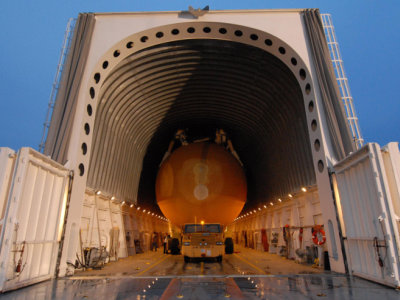Why is it difficult to develop a refrigerator that stores food at the International Space Station?

Refrigerators are indispensable for the long-term storage of food in modern human life. Refrigerators are indispensable, especially in life in space where food replenishment opportunities are very limited, but it is very difficult to develop a refrigerator that works well in space.
To give astronauts better food, engineers test a fridge prototype in microgravity --Purdue University News
https://www.purdue.edu/newsroom/releases/2021/Q2/to-give-astronauts-better-food,-engineers-test-a-fridge-prototype-in-microgravity.html
The Quest to Build a Functional, Energy-Efficient Refrigerator That Works in Space | Innovation | Smithsonian Magazine
https://www.smithsonianmag.com/innovation/quest-to-build-functional-energy-efficient-refrigerator-that-works-in-space-180978281/
NASA astronaut Victor Glover, who had just completed a 168-day mission on the ISS in May 2021, said, 'Astronaut refrigerators really boost the morale of the ISS crew. By doing so, we can live a familiar life on the ground even on the ISS. '
The International Space Station (ISS) has several facilities that can cool to approximately minus 160 degrees Celsius, but these are incubators for space experiments and cannot be used for food preservation to avoid contamination. Refrigerators that astronauts can use personally are not high-spec and expensive refrigerators for experiments, but simple ones that can be operated for a long time and emphasize convenience, maintainability, and energy efficiency, that is, they are used on the ground. It is necessary to have a refrigerator that looks like it is, but it is very difficult to operate a general refrigerator in a micro-gravity environment such as space.

Most refrigerators used in ordinary households use a method called 'gas compression type'. In the gas compression type, the heat of vaporization when the liquid refrigerant circulating in the cooling pipe evaporates absorbs heat from the inside of the refrigerator and releases it to the outside, cooling the inside of the refrigerator. Then, the vaporized refrigerant becomes a high-temperature and high-pressure gas again with a compressor, and is condensed into a liquid with a condenser. Oil is used for the moving parts of this compressor, and what drips into the oil pan attached to the compressor is circulated and used again.
However, this oil circulation is only possible when there is gravity. In a micro-gravity environment such as the ISS, it is difficult to maintain normal operation because the oil does not drip into the oil pan, it scatters in various directions, and the compressor may burn.
Therefore, a research team at Purdue University's Department of Mechanical Engineering focused on oil-free compressors used in the medical field to move surgical instruments and life-saving ventilators. Furthermore, in order to cool the compressor, we adopted a water cooling system that circulates coolant (coolant) outside the moving parts.
The research team then rotated the refrigerator itself to verify that it would work even if the refrigerator was turned sideways or upside down. The image below is the rotatable experimental refrigerator used in the experiment.

In addition, you can see how the refrigerator is actually rotated in the following movie.
Can this refrigerator work in zero gravity? --YouTube
In addition, the research team installed an experimental refrigerator on the aircraft and conducted 30 experiments to confirm whether it functions properly in a microgravity environment of 20 seconds due to a parabolic fall. As a result, it was found that the experimental refrigerator works normally no matter which direction it is turned or placed under microgravity conditions.
The following movie shows how to test an experimental refrigerator in an airplane that actually falls in a parabola.
Fridge works in zero gravity --YouTube
'The goal of the research project is to prevent astronauts from repairing the refrigerator, but how long the refrigerator can be used continuously in space,' said Leon Brendel, a member of the research team and a student at Purdue University's Department of Mechanical Engineering. I don't know. I haven't had a refrigerator break down in a three-year research project, but I haven't experienced it for as long as 10 years. '
Related Posts:







